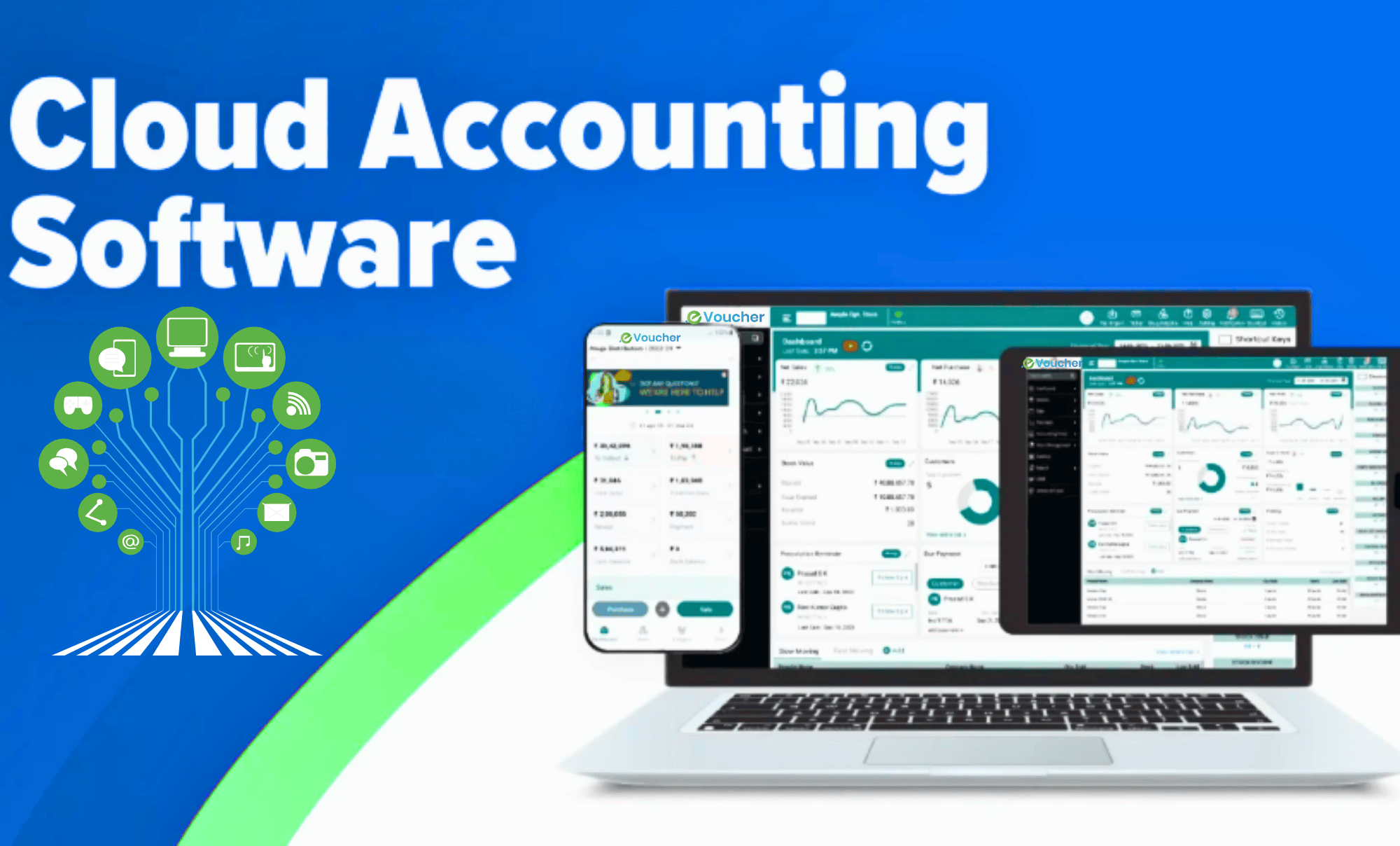Cloud-Based Accounting Software Enhance Financial Management
Cloud-based accounting software has revolutionized financial management by offering businesses a flexible, real-time, and efficient solution for handling their accounts. Unlike traditional accounting software that operates on local servers, cloud-based solutions store financial data on secure online platforms, allowing users to access and manage their accounts from anywhere with an internet connection.
Importance of Financial Management in Businesses
Effective financial management is the backbone of any business. Keeping track of cash flow, managing expenses, ensuring tax compliance, and preparing financial reports are crucial for maintaining profitability. Cloud-based accounting software simplifies these tasks, making financial operations more streamlined and accurate.
What is Cloud-Based Accounting Software?
Cloud-Based Software
Definition and Key Features
Cloud-based accounting software is an online financial management tool that allows businesses to track income, expenses, invoicing, payroll, and financial reporting in real time. Some of its key features include:
Automated bookkeeping
Multi-user access and collaboration
Real-time financial reporting
Secure cloud storage and data backups
Integration with other business tools
Differences from Traditional Accounting Software
Traditional accounting software requires installation on a local system and manual updates, often leading to data silos and security risks. In contrast, cloud-based solutions provide automatic updates, real-time data synchronization, and enhanced security measures, ensuring businesses always have access to the latest financial insights.
Advantages of Cloud-Based Accounting Software
Advantages Of Cloud-Based
1. Real-Time Financial Tracking
Cloud accounting software enables businesses to monitor their financial status in real-time. This helps decision-makers quickly analyze financial trends and adjust strategies accordingly.
2. Accessibility and Remote Management
With cloud-based solutions, businesses can manage their finances from any device with internet access. This is especially beneficial for remote teams and businesses with multiple locations.
3. Automation of Financial Processes
Manual accounting tasks, such as invoicing, payroll processing, and tax calculations, can be automated using cloud accounting software. Automation reduces human errors and increases efficiency.
4. Improved Data Security and Backups
Data stored in cloud-based accounting systems is encrypted and backed up regularly. This ensures that financial records remain safe from data breaches, accidental loss, or system failures.
5. Cost-Effectiveness and Scalability
Unlike traditional accounting software that requires expensive licenses and maintenance, cloud-based solutions operate on a subscription basis. Businesses can scale up or down as needed, making it a cost-effective choice for companies of all sizes.
How It Enhances Financial Management?
Enhances Financial Management
1. Streamlining Bookkeeping and Reporting
Cloud accounting software automates data entry and categorization, making bookkeeping more efficient. Financial reports, such as profit and loss statements and balance sheets, can be generated instantly.
2. Reducing Human Errors with Automation
Automation eliminates manual entry errors, ensuring financial data is accurate. This leads to better compliance with financial regulations and fewer discrepancies in records.
3. Facilitating Collaboration Among Teams
Multiple users can access cloud-based accounting software, allowing accountants, finance teams, and business owners to collaborate seamlessly. Role-based access ensures security while enabling efficient teamwork.
4. Compliance with Financial Regulations
Cloud accounting software keeps businesses compliant with tax regulations and financial laws. Many solutions offer built-in tax filing features, automated calculations, and compliance reports.
How to Choose the Right Cloud Accounting Software
Choose The Right Software
1. Factors to Consider
When selecting cloud-based accounting software, businesses should consider:
Business Size: Small, medium, or large enterprises may have different requirements.
Features: Look for essential features like invoicing, expense tracking, and financial reporting.
Pricing: Subscription plans should align with business budgets.
User Experience: A user-friendly interface ensures easy adoption.
2. Integration with Other Financial Tools
The ability to integrate with other financial tools, such as payment gateways, payroll systems, and tax software, enhances efficiency and centralizes financial management.
Future of Cloud-Based Accounting Software
Future Of Accounting Software
Emerging Trends and Technologies
The future of cloud-based accounting software is evolving with new technologies like:
Artificial Intelligence (AI) and Machine Learning (ML): AI-powered analytics help businesses predict financial trends and optimize cash flow management.
Blockchain Technology: Enhances data security and transaction transparency.
Mobile Accounting Apps: Allow businesses to manage finances on the go.
Advanced Data Analytics: Provides deeper insights into financial performance.
Conclusion
1. Summary of Benefits
It simplifies financial management by providing real-time tracking, automation, enhanced security, cost-effectiveness, and improved collaboration.
2. Encouragement to Adopt Cloud-Based Solutions
In today’s fast-paced digital landscape, businesses must adopt cloud-based accounting solutions to stay competitive. Investing in the right accounting software like evoucher Accounting software enhances financial efficiency, security, and growth potential, making it an essential tool for any business.
By leveraging cloud technology, businesses can take control of their finances, improve cash flow management, and scale operations effortlessly, ensuring long-term success in an increasingly digital economy. Click now to open Evoucher






 (72).png)
 (70).png)
 (60).png)
 (58).png)
 (55).png)